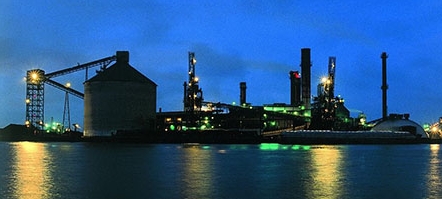
The by-product from crude oil refining is Petroleum Coke. It is used to produce aluminum, steel and fuels, among other things. You can buy it in two versions: fuel-grade petroleum coke or calcined gasoline coke. A gas leak incident at the Marathon Petroleum refinery in California resulted in four employees being taken to local medical facilities for evaluation, however the refinery was not shut down. The incident led to a decrease in prices for fuel-grade Petroleum Coke. This was due to increased market supply and the gas leak. Market growth is expected to be driven by the cement and electricity generation industries. It is expected that the growing construction industries in China, India and other countries will boost demand for calcined petrol coke. Power plants will also consume significant amounts of calcined petrol coke to generate electricity.
Increasing construction activities along with rapid industrialization is likely to drive the growth of the calcined petroleum coke market globally. This is especially true for countries such as China and India which have a huge steel-producing population and soaring cement industries. This industry relies on a high quantity of calcined petrol coke as it provides many benefits such as high conductivity, light weight, good ductility as well as high thermal and electric energy density.

Another major driver of the market for calcined oil coke is an increase in aluminum consumption. This metal is used to make a range of products for both commercial and domestic use, including automobiles, building structures, window and door systems, and windows. In addition, the metal can be used to make alumina. It is one of the key ingredients in many products that are industrial, including steel, paints and finishes, fertilizers and a variety of other materials. In the production of aluminum, petroleum coke (calcined) is a key raw material.
The COVID-19 pandemic slashed the production of aluminum, which also impacted its use as an industrial raw material. Lockdowns and curfews during the COVID-19 pandemic had a severe impact on the aluminum and steel industries. This in turn reduced the demand of green and calcined Petroleum Coke. Market growth is predicted to increase over the next several years.
Many major manufacturers are expanding the capacity of their calcined coke manufacturing to satisfy an ever-growing demand. Moreover, some major players are focusing on building long-term partnership with end-use industries in order to secure stable sales and ensure efficient distribution channels.
It is expected that the industry for calcined petrol coke will continue to grow due to increased infrastructure development, especially in emerging countries, such as China. Indonesia, Pakistan and Singapore. Also, rapid progress in economics and population growth will drive the market for calcined Petroleum Coke.

Write a Message